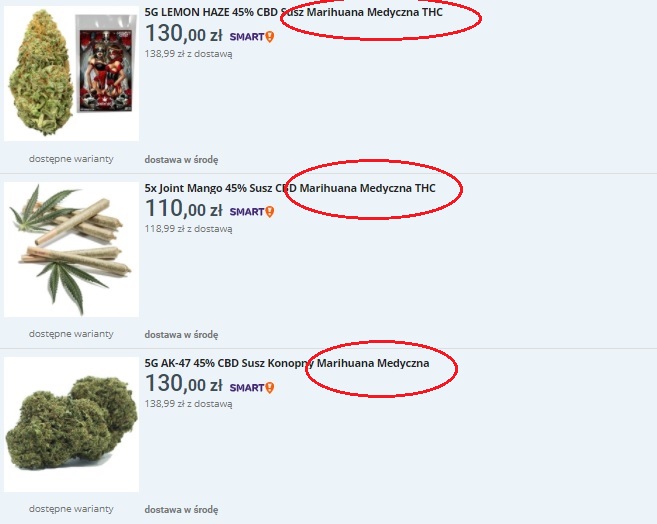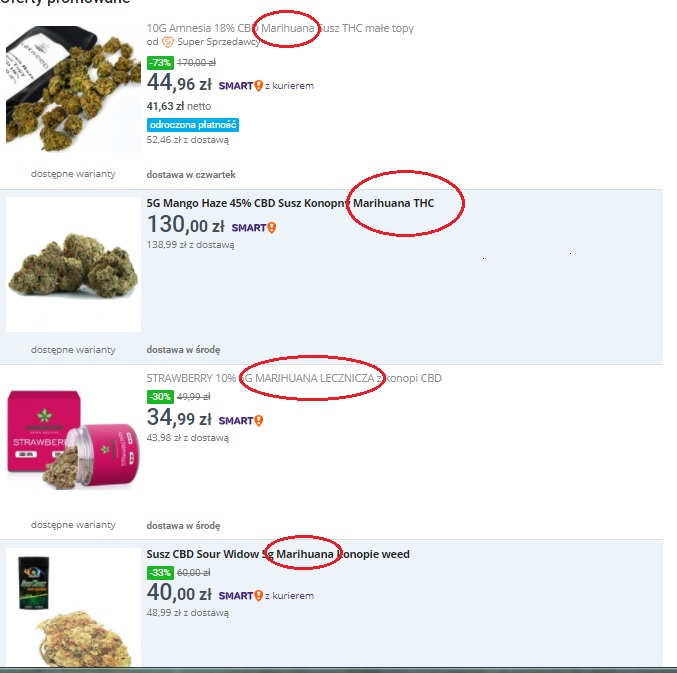Search in blog
Latest posts
Learn how to detect fraud in the CBD hemp product space. Be sure to read our article so that you never fall victim to fraud and deliberate misleading
New industries always attract customers who don't yet understand what to watch out for – creating the perfect climate for scammers. Such an industry is, among others, the cannabis industry, which in recent years has been experiencing really great growth and recognition of consumers around the world.
Currently, the CBD market is completely unregulated. Almost anyone with some capital can get into the cannabis business, and over the past year, there have been plenty of products at appallingly low prices that attract unwitting customers.
Result? Consumers find it difficult to determine whether the CBD products they buy are legal, natural or primarily effective. This is unfortunate because there is a lot of evidence that CBD helps many people.
While we usually focus on the positive aspects of the industry and top-quality CBD products, we also think it's important to warn our readers... and put pressure on the hemp industry to make it work better.
Any little-known company can engage in CBD scam in many ways. The most obvious way is to sell a product that contains less than the promised amount of CBD or maybe doesn't contain it at all. In other words, you pay well for something that won't help you.
For the same reason, you can buy a product that has not been tested for harmful chemicals or contaminants. Hemp is a very absorbent plant. If it grows in contaminated soil, you can use the very harmful dried hemp CBD. Because the European Medicines Agency (EMA) doesn't fully regulate the cannabis industry, you can't rely on the government to make sure that what you're getting is safe or that you're getting what you paid for in a CBD product.
There are many other types of CBD scams used by companies that want to cash in on the CBD boom – at your expense. In particular, there is one scam that is very serious in legal terms and violates the trust of any potential CBD customer in the future.
A very common phenomenon is currently the sale of hemp products under very bad slogans like; "marijuana", "medicinal marijuana," "legal joint," "legal marijuana," "THC," "medical marijuana," etc.
As is well known, cannabis is illegal in Poland and all such auctions are a blatant scam in advance. These types of marketing tricks are very detrimental to all companies involved in the cannabis industry, as it is stigmatized by both the people and the authorities, which can harm honest sellers.
Therefore, we appeal to all our readers to report this type of auction on Allegro and, above all, avoid hemp products from uncertain sources. This can be harmful and dangerous to health. We also remind you that the maximum concentration of THC that dried hemp CBD should contain is 0.2% It can always happen that a dried purchased from an uncertain source may exceed well above the permissible THC norm. In this case, the owner of such a dried fruit may find himself in very serious trouble with the police.
Below are some examples registered on the most popular sales platform in Poland. Now the question arises whether the seller is deliberately misleading the customer? Does it actually sell medical marijuana without a license, which is only available in a pharmacy? Or does it sell medical CBD oil?


In July 2020. SC Laboratories' research laboratory completed the study in collaboration with the United Cannabis Business Association (UCBA). The lab tested 17 samples purchased from unlicensed CBD stores.
More than 70 percent of the samples failed testing due to excessive contamination or did not qualify as hemp. 42 percent of the samples failed safety tests compared with about 1.5 percent of the samples that failed the contaminant test on a regulated market.
In some cases, the level of pollution exceeded the permissible limits several hundred times. 53 percent of the samples tested labeled as hemp or hemp-based by definition did not qualify as hemp (the maximum THC concentration was exceeded)
Most of the products tested contained a level of THC sufficient to produce psychoactive effects. "CBD products cannot contain more CBD or less than the declared amount," says Aaron Riley, CEO of CannaSafe, California's leading ISO-accredited cannabis testing laboratory.
First of all, the CBD manufacturer should be able to compile an external certificate of analysis that shows how its products have performed in screening for CBD, THC and any impurities. Tests should also be done for terpenes. The certificate of authenticity should contain the batch number of the product; Levels of CBD and THC and other phytocannabinoids only this can attest that it is a natural product and not artificial; and a certificate indicating that residues of heavy metals, pesticides and solvents are within acceptable limits (which may vary from one EU country to another.
If the product contains only CBD, it means that it is not a natural product – then it contains an isolate or synthetic!
"If there is no information about product testing, or if the product has an old and/or outdated certificate of authenticity, these are signs that the product does not contain the advertised ingredients" This information should be available on the brand's website.
If a bottle of CBD oil or capsules claims to "cure" anxiety or "fix" sleep problems, it's a big scam. In fact, making health claims is only legal for prescription drugs and is strictly prohibited by the (EMA) and the Trade Commission when it comes to supplements such as CBD products. "I would avoid anything that claims to solve medical ailments," Riley says. "I would also avoid exaggerated marketing jargon such as 'Real CBD' or '100% CBD'.
Everyone loves a good deal, but in the CBD world, opportunity can be a sign of a fake product. CBD is still expensive, and if the product is drastically cheaper than others, it may not contain the advertised CBD and CBDA and other phytocannabinoids.
So why, for example, is CBD oil so expensive? "In addition to the standard costs of running a business, there are many unique costs associated with CBD," says Lital Shafir, head of product at Leafreport, a Tel Aviv-based educational platform whose mission is to bring transparency to the confusing CBD industry.
"One of the best examples is specialized mining equipment and qualified staff to operate it. There are still the costs of growing hemp. Growing hemp can be laborious and require additional expenditure on cultivation licenses and costs associated with hemp regulations in individual EU countries. And let's not forget the additional costs of things like third-party testing."
There's a reason why high-quality CBD oil is available in amber (brown) or dark glass bottles (such as cobalt or green) – UV light breaks down the oil compounds, and these darker packaging colors provide better protection than clear glass.
Reputable brands store their CBD oils only in a bottle that properly preserves the product. Plastic decomposes over time and can contaminate the oil, so this is another reason why glass is the preferred material.